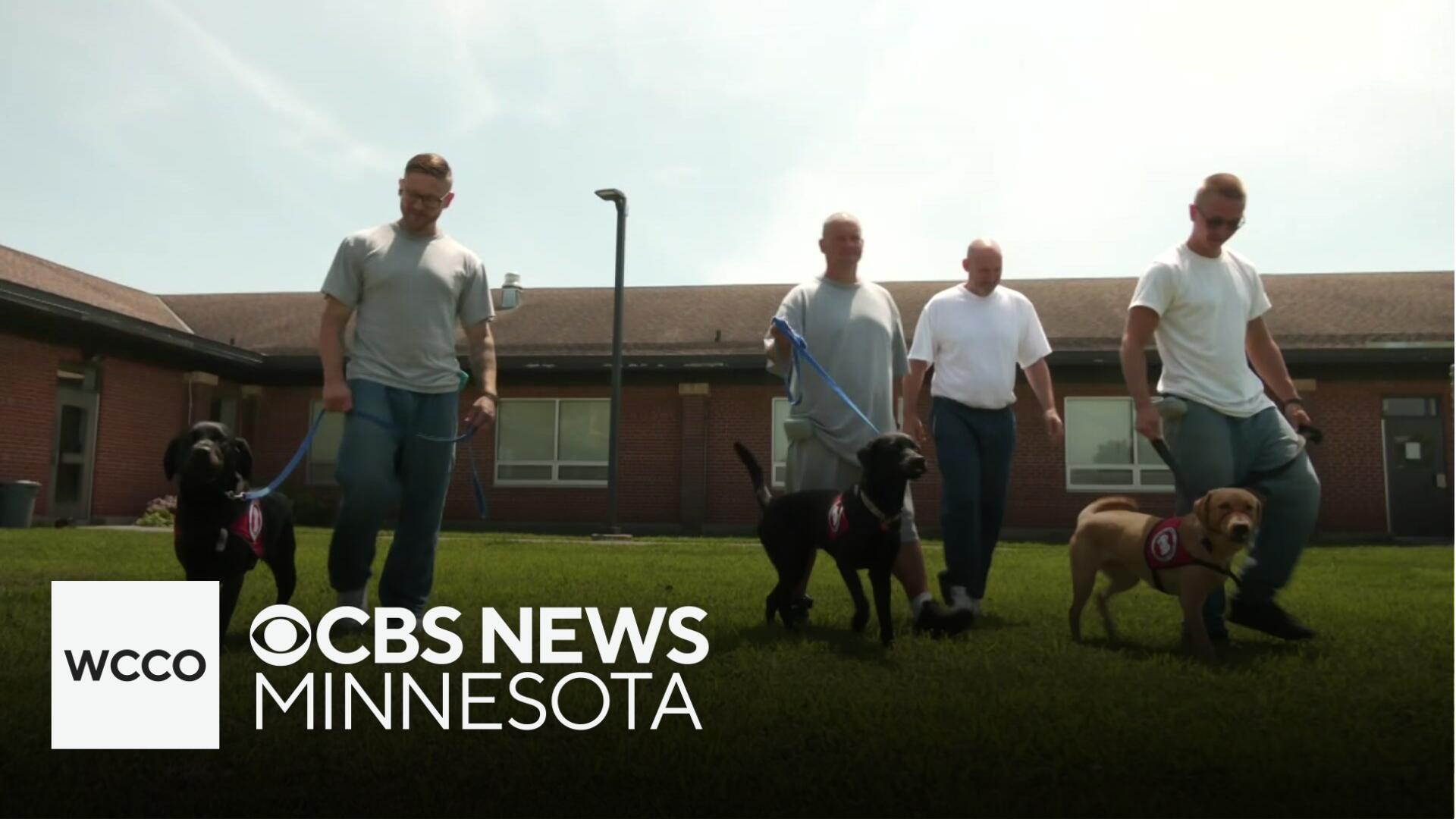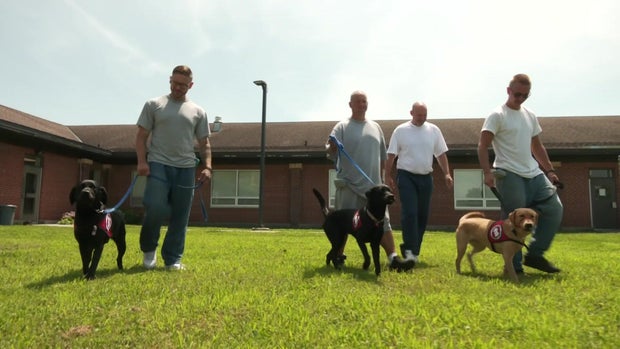Minnesota, Wisconsin prison inmates training puppies to be assistance dogs
A sign outside the main gate of the Minnesota Correctional Facility in Faribault, the state's largest prison, warns of security dogs, but a special litter of Labrador puppies inside the fences that are providing inmates with a different kind of personal safety.
Can Do Canines, a New Hope, Minnesota-based assistance dog service, has teamed up with nine state and federal prisons across Minnesota and Wisconsin for a program where inmates are the primary handlers and trainers, including at the Faribault facility.
"I've learned the value of connection," LeNorris Drummond, an inmate handler, told WCCO News. "When I'm just lonely, I go in and you talk to him. He shakes his head a little bit, and he's understanding me."
Drummond was convicted on drug charges and sentenced to more than six years in prison.
"We're all not perfect, and we fail at times, but it's about getting back up and growing to move forward and better your life, not just for yourself but your family and community," he added. "To know when I get out, I have to have responsibility to take care of myself in order to transition and transform my life and starting to make better choices."
Mitchell Nagel, the corrections officer overseeing the program, said the inmates must pass a rigorous review process before becoming handlers, including being approved to live in minimum security quarters, which affords them more freedom on campus while wearing a GPS ankle bracelet.
"If someone is misbehaving or going to segregation and you're not doing what you're supposed to be doing, then you won't be allowed out here," Nagel explained. "I can look at their living space and see that it's clean. That's a huge thing. You don't want a dirty and messy area when you have a dog walking around."
Drummond is one of eight handlers for four Labrador puppies currently at Faribault. His dog, Racer, will soon turn 1 year old and be returned to Can Do Canines before being sent elsewhere for its full-time work as an assistance dog.
Once Racer leaves, another puppy will come to live and train with Drummond.
"It's the connection, the friendship," he said. "The biggest thing is I have someone to take care of."
According to prison officials, the training program is of no cost to taxpayers, and Can Do Canines provides all food and equipment.






